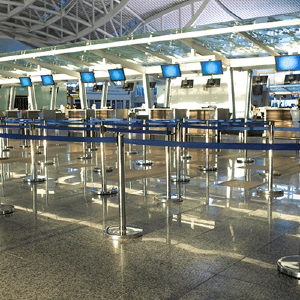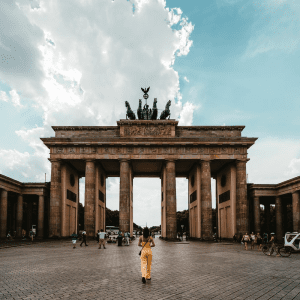 Aiding the visitor experience, mitigating the effects of overtourism, and leading to more sustainable management, smart cities are the way forward in post-pandemic travel.
Aiding the visitor experience, mitigating the effects of overtourism, and leading to more sustainable management, smart cities are the way forward in post-pandemic travel.
Digital ‘vaccine passports’ continue to create headlines worldwide and are meant to ensure the safe recovery of international travel post-pandemic. This concept paves the way for a closer relationship between technology and travel in the near future and smart cities will undoubtedly play a key role, says GlobalData, a leading data, and analytics company.
According to GlobalData’s survey, 78% of respondents expect technology to change the way they do their job over the next three years. It will also affect the way individuals travel and their experiences at an attraction or destination.
Johanna Bonhill-Smith, Travel & Tourism Analyst at GlobalData, comments: “COVID-19 has brought forth more opportunity for destinations to rebuild and re-think their tourism policies, working towards a more sustainable future. Many destination management organizations (DMOs) have been assessing their tourism source markets and working on adjusting their image to attract more ‘civilized tourists’ post-pandemic. Others, however, have been working on a ‘smart concept’ to ensure a seamless visitor experience post-pandemic and monitor tourism more closely through capacity management as they work towards a more responsible tourism model.
“Even though the ‘smart city’ concept has been mentioned frequently in the past, the reality is there are only a few destinations actively working towards it. Many DMOs were behind the curve pre-pandemic. However, with businesses more heavily focusing on incorporating technology to improve the visitor experience through no touch and ‘contactless’ services alongside smart app engagement, there is clearly greater leverage for DMOs to utilize data in future management.”
Both Singapore and Venice are prime examples of destinations that are advocating the benefits of smart technology. Singapore has consistently been awarded the title of the ‘world’s smartest city’ in the IMD Smart cities index and Venice has accelerated its development with Internet of Things (IoT) and capacity management to build more responsibly post-pandemic.
Bonhill-Smith adds: “With businesses adapting to consumer preferences post-pandemic, this brings further opportunity for DMOs to collaborate with local stakeholders to build more responsible tourism policies post-pandemic.
“It is known news that stakeholder engagement is a critical factor in a tourism destination’s success. Technological and smart solutions alone will continue to be important in future travel, but the combination of technology and collaboration are the two prime factors that will lead to more responsible tourism in a post-pandemic environment.”


















